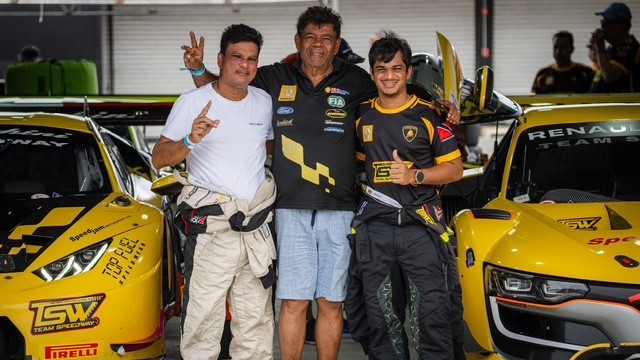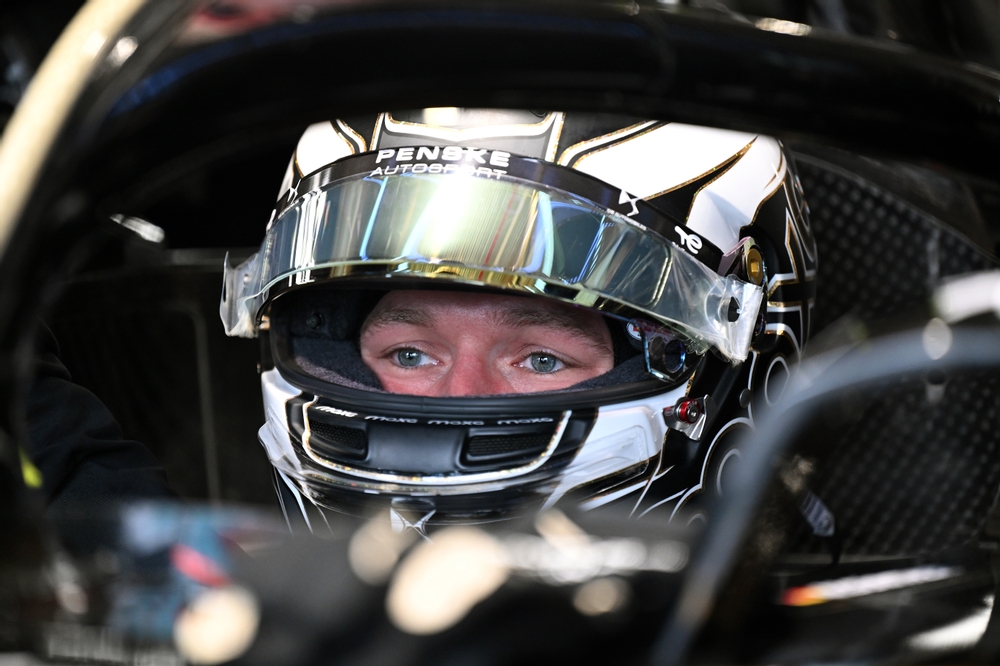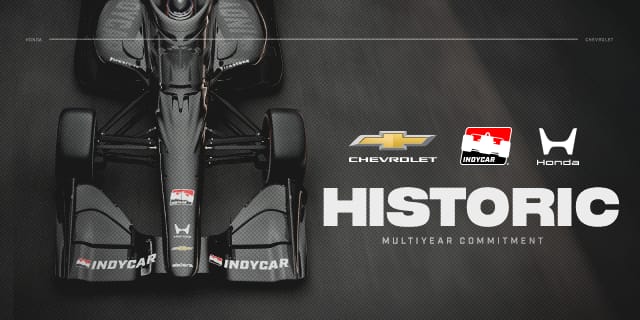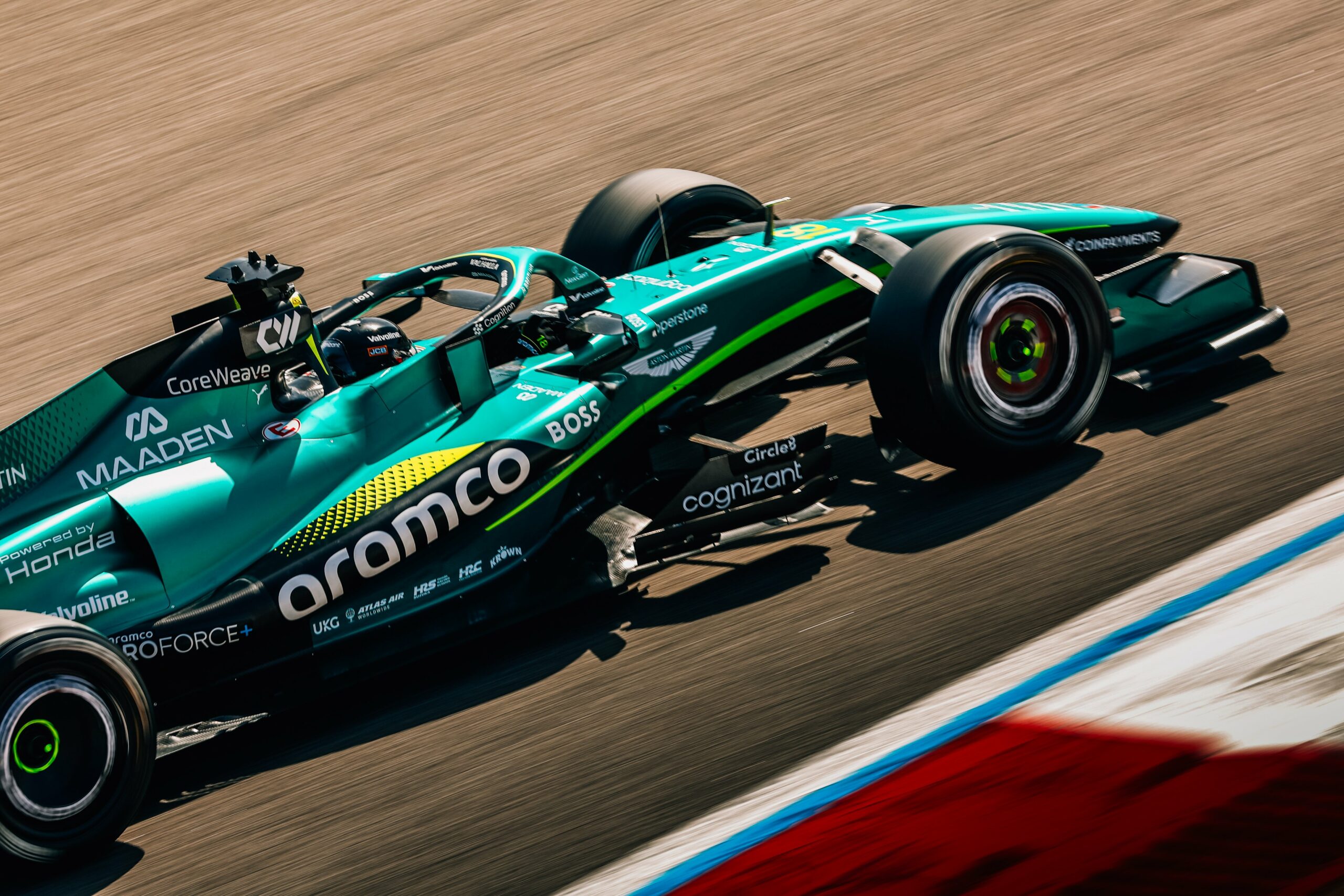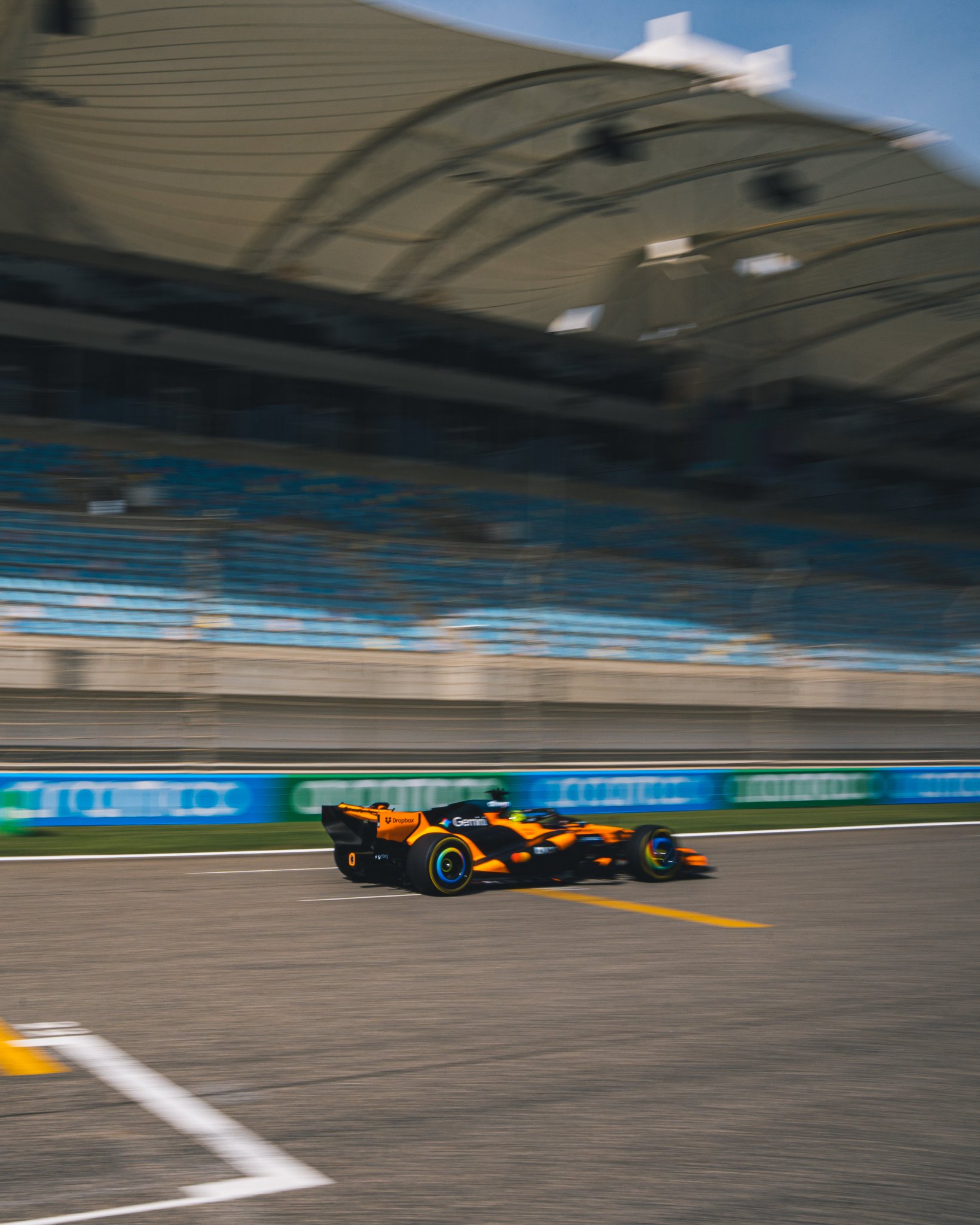Trinidad and Tobago has long been known for Carnival, steelpan, and its legendary sporting heroes in cricket, football and athletics. Yet tucked into the nation’s cultural fabric is another story: one of engines, circuits, and a family dynasty that has defined racing in the Caribbean for decades. At the centre of that story today stands Zachary Boodram, a 26-year-old racer who represents the third generation of the Boodram family. His grandfather Frankie and father Franklyn were both household names at regional tracks, and now Zachary Boodram carries the baton — or rather, the steering wheel — onto the international stage.
But the youngest Boodram is more than just a competitor. He is a voice for the realities of motorsport in the Caribbean: the struggles with funding, the decline in local infrastructure, and the enormous potential of young drivers who lack opportunities to shine. His reflections illustrate both how far the sport has come and how much further it needs to go.
The SEA gift that started it all
Boodram’s first step into motorsport came at a moment that might seem ordinary but turned out to be life-changing. For most Trinidadian and Tobagonian children, the Secondary Entrance Assessment (SEA) signals the stressful transition from primary to secondary school. For Boodram, it also marked the beginning of his journey into racing.
“Yeah, basically I think I wrote the [Secondary Entrance Assessment] and basically, I think that same Christmas or something, I got a kart and well, we started from there. But, back in the day motorsport was a lot bigger than it is right now in Trinidad.”
That kart was an initiation into a world that his family had shaped for decades. Unlike many international drivers who begin karting at six or seven, Boodram’s introduction came later, but it was the foundation of a career that would eventually carry him to international GT racing.
Racing in its golden age
Before Boodram ever turned a wheel, he grew up immersed in stories about his grandfather’s era. Frankie Boodram raced in a Trinidad that celebrated motorsport with the same passion reserved today for cricket or football. Crowds thronged to the Wallerfield International Raceway, and motorsport enjoyed mainstream recognition.
“Motorsport, I have heard many stories and seen many pictures of back in the day when my granddad used to race [with] the big names that you would hear now as just like legends. Back in the day, there were like 20,000 people, I think, for a normal race event that, that happened on a weekend, not an international event, nothing like that. A normal event would have like 20,000 people, like how cricket is now.”
For a young Zachary Boodram, these stories painted motorsport not as a niche pastime but as a pillar of national culture. Photographs of packed stands and legendary rivalries shaped his sense of belonging to something larger — a legacy that tied his family to the wider identity of Trinidad and Tobago.
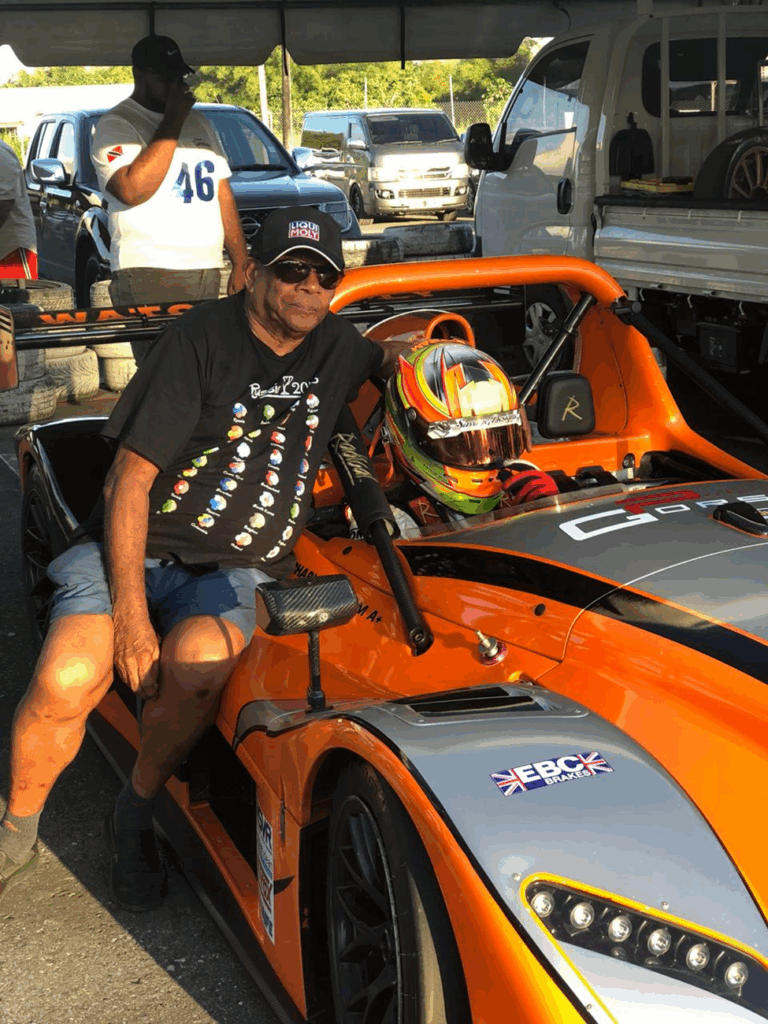
The downfall of motorsport in Trinidad and Tobago
But the contrast between then and now could not be starker. Where his grandfather once raced in front of thousands, Zachary Boodram has faced much smaller crowds. The decline, he explains, came gradually, as interest waned, drivers dropped out, and eventually the country lost its premier racing venue.
“So racing was like that, drag racing, circuit racing. It was always like that. And then it gradually kept getting lower and lower and well, less interest, less cars came out, less drivers came out. And then spectators would soon decrease and then when they lost [the Wallerfield circuit], it was just really hard, I guess, for the committees and stuff, because remember they don’t make money so to say. It’s not a business, right?”
The loss of the Wallerfield International Raceway in 2006 was devastating. It was not only a circuit; it was a hub where community, culture, and competition converged. Without it, organisers were forced to relocate events to temporary venues like car parks or make-do circuits, stripping the sport of its grand stage. For young drivers like Zachary Boodram, this meant starting their careers in an environment far removed from the glory his grandfather experienced.
Racing on limited resources
Behind every event lies a committee struggling to keep the sport alive. Without commercial revenue streams or government backing, clubs scrape together enough funds to maintain facilities and host races. Boodram acknowledged this reality, pointing out that even though the Frankie Boodram Wallerfield International Raceway bears his grandfather’s name, his family has no role in its operations.
“So, the money that they made from events was really just enough to fund the next event or to maintain the place and for the next event, and [I think that] they don’t really get any help from the government per say, that I know of. I’m not on the committee or anything like that. Neither is my family. It was named after my granddad, but that’s about it. We don’t have any say or anything when it comes to the track. So, the committee and the club [are] the ones that have maintained the track, through events and whatever.”
This survival model has kept motorsport alive but fragile. Without steady investment, publicity suffers, and the cycle of decline continues.
“I think the problem is publicity is a big thing and it costs a lot of money to do that. So to get people more involved and to bring more spectators, it’ll take some time. It has still not fully recovered from the loss it had from all those years ago.”
Talent versus sponsorship
Boodram is adamant that the Caribbean does not lack drivers with world-class skill. The barrier lies elsewhere: in sponsorship. Motorsport is one of the most expensive sports on the planet, and opportunities depend heavily on financial backing. Unlike in Europe or the United States, where companies invest in young talent, Caribbean drivers must often rely on family resources.
“I don’t think that is lack of talent that the Caribbean [has]. I think it’s lack of funding and lack of sponsorship, because not a lot of the Caribbean companies are willing to help like how the European or American companies will jump on board and say, “hey, we’d love to give you X, Y and Z for a spot on the car and we’d love to help build your career and stuff like that.””
“In the Caribbean, it’s not like that. It’s very hard to get sponsors. Even up to this day, it’s very, very hard. And what they’re willing to put out, it’s really small compared to what a driver puts out to reach where they reach.”
Regional stars on the rise
Despite these challenges, the Caribbean continues to produce names that shine on the international stage. Boodram pointed to Zane Maloney of Barbados, who competes in Formula E, and Alex Powell, who represents Jamaica, but has ties to Trinidad and Tobago, while racing under the Mercedes-AMG junior programme.
“I mean, for instance, Zane [Maloney] and his family have put out more money than anyone could ever imagine to where he has reached. Alex Powell, for instance, who is basically a Trinidadian and a Jamaican, he’s younger than Zane, but we truly believe that he’s going to reach the actual Formula 1. I think he’s going to make it, I really do. He’s a really nice kid. His family [are] nice people. He is in the [Mercedes]-AMG youth programme for the past three or four years, if I’m not mistaken. Tommi [Gore] from Jamaica, he has started GT4 racing also. And there’s so many other drivers that are trying out of the Caribbean.”
These examples prove that the Caribbean produces talent capable of reaching the highest levels of the sport. What remains missing is the infrastructure and sponsorship to consistently support such journeys.
The harsh reality of motorsport economics

Motorsport is often described as a sport where money can matter more than talent. Boodram spoke candidly about this imbalance. Those with resources can progress until their skill reaches a ceiling, while those without funding may never even get the chance to show their abilities.
“But again, it’s very hard [to find] sponsors, so it’s very hard to get financial backing to reach where we would like to reach. We know that we have the abilities, just like everyone in the United States or Europe, or even better. I’ve raced with many different people from all over the world, and it shows that we are just as good or sometimes even better, but we just don’t have the financial backing to help us like how they do. So, it’s hard. You can’t do anything without financial backing, especially in motorsports when there’s more money than talent.”
He recalled his own experience in the Formula 4 Mexican Championship as proof of how skill can attract foreign support when local backing is absent.
“Basically, so everyone who wants to be a driver and has the financial backing to do it, they reach away until they can’t go anymore because of skill level. Meanwhile, there’s a lot of people with skill who just can’t get the backing to reach there for the media or for the big sponsors that are willing to sponsor. It’s just a thing. So, I mean, when I raced in Formula 4 in Mexico, for instance, it was hard to get local sponsors. I got Mexican sponsors to help me, and it was solely just because of driving and skill level, and it took a couple events before they started to jump on board.”
Advice for the next generation
Despite the difficulties, Boodram remains optimistic. His advice to young drivers is grounded in discipline, focus, and the need to seek opportunities beyond the Caribbean.
“I would say practice makes perfect. Try your best to always keep your head straight when it comes to motorsport. Don’t get distracted by things if you know you want to make this thing a career. You really need to put your all into it, and you need to try to get out of gear and also try to get drives in the States. Take as much drives as you can because someone might spot you, and you may get that one sponsor that you need to reach where you need to reach.”
He warned that the leap from local racing to international competition involves more than just travel — it requires adjusting to longer races, bigger tracks, and tougher environments.
“It’s very hard to stay in Trinidad or in the Caribbean and try to just hop on board on the international circuit. It’s very hard. Unless you get sponsors, perfect. But it’s very hard to go from the Caribbean to international and not have any small hiccups. When it comes to driving, the tracks are way smaller in the Caribbean compared to the US or Europe or Latin America. The races are longer. Everything is bigger. Picture it as everything is bigger.”
He concluded, “So just stay focused and try to push.”
A bridge between a golden past and hopeful future
Zachary Boodram is more than a rising GT driver. He is a bridge between the golden age of Wallerfield and the uncertain but hopeful future of Caribbean motorsport. His victories abroad demonstrate the ability of Caribbean talent to compete at the highest level, yet his reflections remind us that structural support remains lacking.
The Caribbean can produce motorsport stars capable of competing on the international stage. The likes of Zane Maloney, Alex Powell, Tommi Gore, and Trinidad and Tobago’s own Zachary Boodram have proved that. But without investment and recognition, many will remain undiscovered. Boodram’s message to young drivers is clear: focus, work hard, seek opportunities abroad, and never stop pushing.

